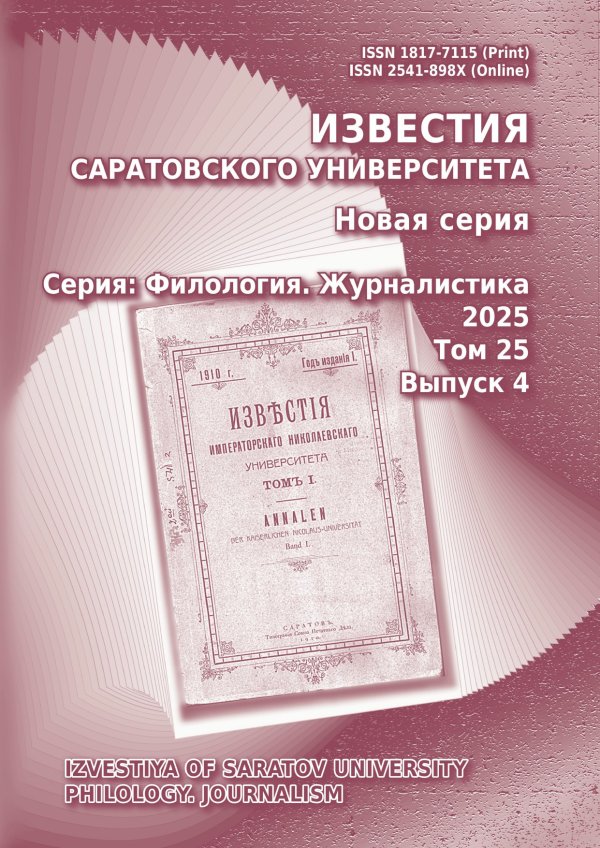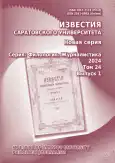Research on Western media coverage of 2022 Beijing Winter Olympics
- Authors: Li M.1, Xiong J.1, Qin B.1
-
Affiliations:
- Jilin University
- Issue: Vol 24, No 1 (2024)
- Pages: 99-110
- Section: Articles
- URL: https://journal-vniispk.ru/1817-7115/article/view/297711
- DOI: https://doi.org/10.18500/1817-7115-2024-24-1-99-110
- EDN: https://elibrary.ru/JZHPBA
- ID: 297711
Cite item
Full Text
Abstract
About the authors
Menglong Li
Jilin UniversityChangchun, 2699 Qianjin Street
Jiaqi Xiong
Jilin UniversityChangchun, 2699 Qianjin Street
Benchuyue Qin
Jilin UniversityChangchun, 2699 Qianjin Street
References
- The final version of the Beijing Winter Olympics “schedule”: These eight years, we go through this way! Available at: https://baijiahao.baidu.com/s?id=17237192260 81056001&wfr=spider&for=pc/ (accessed February 3, 2022) (in Chinese).
- Huang S. G., Lin S. N. The Impact of Mass Media on Chinese Sports Communication in the Post-Olympic Era in the Context of Globalization. Liaoning Sports Technology, 2012, no. 1, pp. 35–37 (in Chinese). https:// doi.org/ 10.13940/j.cnki.lntykj.2012.01.014
- Yu H. M. Beijing Winter Olympic Games broadcast figures reach record high. China Sports News [EB/OL]. [2022-02-17]. Available at: https://www.sport.gov.cn/ n315/n329/c24022826/content.html (accessed February 18, 2022) (in Chinese).
- Why the Beijing Winter Olympic Games are watched by the largest number of people? Available at: https:// baijiahao.baidu.com/s?id=1725053991240807312&w fr=spider&for=pc/ (accessed February 18, 2022) (in Chinese).
- Beijing 2022 Winter Olympic Games successfully concluded the world to embrace the future. Available at: https://www.ccdi.gov.cn/toutiaon/202202/ t20220221_172986.html/ (accessed February 21, 2022) (in Chinese).
- From clothing hauls to TikTok trends, Gen Z Olympians show new side of Games. Available at: https://www. reuters.com/lifestyle/sports/clothing-hauls-tiktok-trendsgen-zolympians-show-new-side-games-2022-02-11/ (accessed February 11, 2022).
- Wang J. Y. The influence of mass media on political struggle in the era of globalization. Xi’an Social Science, 2022, no. 2, pp. 130–132 (in Chinese).
- Zhang Z. Research on the guidance of media opinion in sudden events. Wuhan, Huazhong University of Science and Technology, 2016. 46 p. (in Chinese).
- Cottrell M. P., Nelson T. Not just the Games? Power, protest and politics at the Olympics. European Journal of International Relations, 2011, vol. 17, iss. 4, pp. 729–753. https://doi.org/10.1177/1354066110380965
- Foreign media look at the Winter Olympic epidemic prevention: China’s “dynamic zero” policy for other countries to learn from the significance. Available at: http://news.youth.cn/gj/202202/t20220219_13462687. html/ (accessed May 26, 2022) (in Chinese).
- Beijing Winter Olympic Games in the eyes of foreign media. Available at: https://baijiahao.baidu.com/s?id= 1725700853869435470&wfr=spider&for=pc (accessed May 23, 2022) (in Chinese).
- Overseas media praise the opening ceremony of the Beijing Winter Olympics: Gorgeous! Available at: https:// baijiahao.baidu.com/s?id=1723926426060244753&wfr=spider&for=pc (accessed May 26, 2022) (in Chinese).
- Foreign media focus on the closing of the Beijing Winter Olympics, the U.S. media reporter said “will never forget the warmth of the Winter Olympics”. Available at:https:// baijiahao.baidu.com/s?id=1725367154400848102&wfr=spider&for=pc (accessed May 26, 2022) (in Chinese).
- How the British and American media reported the success of Beijing’s bid for the Winter Olympics. Available at: http://www.360doc.com/content/20/0903/21/71400495_933841918.shtml (accessed April 15, 2022) (in Chinese).
- After the Winter Olympics, I combed through foreign media reports. Available at: http://k.sina.com.cn/arti cle_1887344341_707e96d5020017tan.html (accessed March 29, 2022) (in Chinese).
- Beijing Winter Olympic Games artificial snow praised by athletes: The best so far. Available at: https://baijiahao. baidu.com/s?id=1724903557885629912&wfr=spider& for=pc (accessed 21 April 2022) (in Chinese).
- Lin S. X. Analysis of the framing strategies of Western mainstream media’s China-related coverage. Modern International Relations, 2022, no. 1, pp. 53–60 (in Chinese).
- Li X. G., Guo X. K. The International Communication Power of Mainstream Media and the Path to Enhancement. Chongqing Social Science, 2012, no. 8, pp. 5–12 (in Chinese).
- Sun Z. H,. Ouyang X. L. Conceptual Identity and Cultural Exchange: New Ideas for Foreign Communication of Beijing Winter Olympic Games. External Communication, 2021, no. 11, pp. 14–17 (in Chinese).
- Zhao Q. Z. Public Diplomacy and Cross-cultural Communication. Shanghai Culture, 2014, no. 6, pp. 4–5 (in Chinese).
- Du H., Zhang X. Y. International public opinion guidance and media response strategies for the Beijing Winter Olympic Games. Journal of Beijing University of Sports, 2021, no. 1, pp. 52–61 (in Chinese).
- Shi A. B., Sheng Y. Creating a new situation, a new concept and a new form of international communication capacity building. Television Research, 2018, no. 11, pp. 4–7 (in Chinese).
Supplementary files











